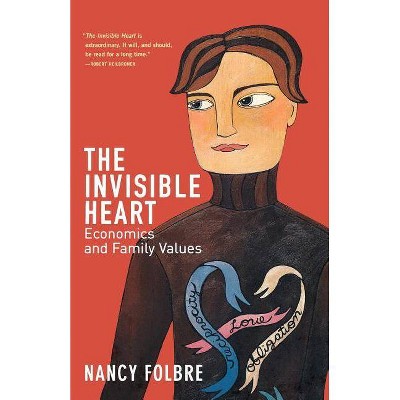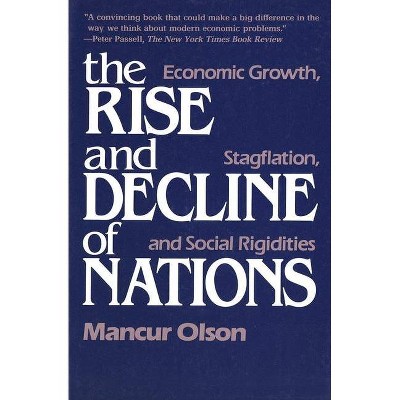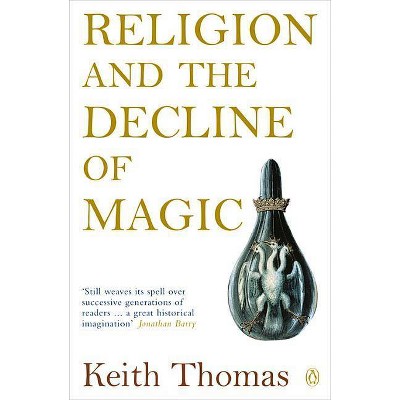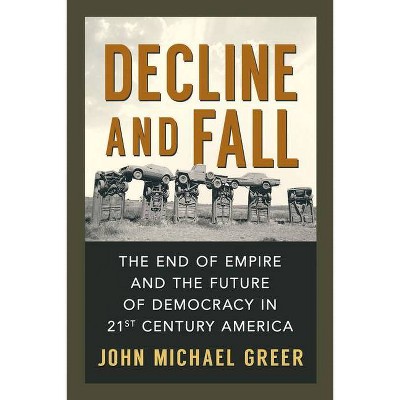The Rise and Decline of Patriarchal Systems - by Nancy Folbre (Paperback)
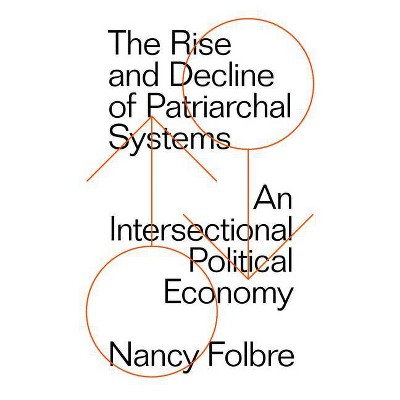
Similar Products
Products of same category from the store
AllProduct info
<p/><br></br><p><b> About the Book </b></p></br></br>"In this groundbreaking new work, Nancy Folbre builds on a critique and reformulation of Marxian political economy, drawing on a larger body of scientific research, including neoclassical economics, sociology, psychology, and evolutionary biology, to answer the defining question of feminist political economy: why is gender inequality so pervasive? In part, because of the contradictory effects of capitalist development: on the one hand, rapid technological change has improved living standards and increased the scope for individual choice for women; on the other, increased inequality and the weakening of families and communities have reconfigured gender inequalities, leaving caregivers particularly vulnerable. The Rise and Decline of Patriarchal Systems examines why care work is generally unrewarded in a market economy, calling attention to the non-market processes of childbearing, childrearing and the care of other dependents, the inheritance of assets, and the use of force and violence to appropriate both physical and human resources. Exploring intersecting inequalities based on class, gender, age, race/ethnicity, and citizenship, and their implications for political coalitions, it sets a new feminist agenda for the twenty-first century."--Provided by publisher.<p/><br></br><p><b> Book Synopsis </b></p></br></br><b>A major new work of feminism on the history and persistence of patriarchal hierarchies from the MacArthur Award-winning economist</b> <p/>In this groundbreaking new work, Nancy Folbre builds on a critique and reformulation of Marxian political economy, drawing on a larger body of scientific research, including neoclassical economics, sociology, psychology, and evolutionary biology, to answer the defining question of feminist political economy: why is gender inequality so pervasive? In part, because of the contradictory effects of capitalist development: on the one hand, rapid technological change has improved living standards and increased the scope for individual choice for women; on the other, increased inequality and the weakening of families and communities have reconfigured gender inequalities, leaving caregivers particularly vulnerable. <p/><i>The Rise and Decline of Patriarchal Systems </i>examines why care work is generally unrewarded in a market economy, calling attention to the non-market processes of childbearing, childrearing and the care of other dependents, the inheritance of assets, and the use of force and violence to appropriate both physical and human resources. Exploring intersecting inequalities based on class, gender, age, race/ethnicity, and citizenship, and their implications for political coalitions, it sets a new feminist agenda for the twenty-first century.<p/><br></br><p><b> Review Quotes </b></p></br></br><br>"A beautifully written summation of the profound ideas of a feminist political economist at the peak of her powers. This is now the go-to book for anyone wanting to understand the complicated intersections of patriarchy with economy, society and polity. Folbre's incredibly broad sweep offers deep conceptual and historical analyses, and also offers many new nuggets of wisdom. This is a book destined to become a classic: to read, re-read and share widely."<br><b>--Jayati Ghosh, Jawaharlal Nehru University, New Delhi</b> <p/> "As one of the world's leading feminist economists, Nancy Folbre has always been deeply engaged in trying to understand how intersecting forms of hierarchical injustice can be mutually reinforcing, to the detriment of the many. In <i>The Rise and Decline of Patriarchal Systems</i> Folbre brings together her vast range of knowledge and experience to knit together a general theory of social change that enlarges the economic to encompass patriarchal institutions, cooperation and conflict, systems and structures, and actors and actions, so as to demonstrate how historical and contemporary structures of collective power create unjust interlocking hierarchies. The ambition behind <i>The Rise and Decline of Patriarchal Systems</i> is breathtaking in its audacity: to create nothing less than a new academic field, intersectional political economy. That Folbre largely succeeds in doing so is remarkable. This book is a tour de force."<br><b>--Haroon Akram-Lodhi, author of <i>Hungry for Change</i></b> <p/> "Drawing on and challenging aspects of neoliberal and Marxist economic traditions--and showing how patriarchal, capitalist, and other systems interact--Folbre explores how gender gaps have evolved worldwide from the age of hunter-gatherers to the 21st century, when people tend 'to view commitments to the care of others as optional lifestyle decisions rather than as socially necessary.' She effectively demonstrates how the undervaluation of unpaid care work has profound consequences for US families and the economy as a whole."<br><b>--<i>Kirkus</i></b> <p/> "Skilfully weaving together key insights from different theoretical traditions and evidence from history and contemporary life, Nancy Folbre provides us with an ambitious but eminently readable account of the rise and, hopefully, decline of patriarchy."<br><b>--Naila Kabeer, Professor of Gender and Development, London School of Economics</b> <p/> "This eloquent and imaginative book should be read by everyone concerned to contest the many intersecting forms of inequality, exploitation and oppression that shape our world. It analyses multiple forms of cooperation and conflict, choice and constraint, putting the care of human beings centre stage, noting that 'capitalism may be manly, but it is not self-sufficient.' It offers a wide ranging historical narrative of how some progressive changes have been won and hope for a future in which we can build solidarities to do so again."<br><b>--Diane Elson, author of <i>Rethinking Economic Policy for Social Justice</i></b> <p/>"This careful application of intersectional feminism to economic theory yields ample food for thought."<br><b>--<i>Publishers Weekly</i></b><br><p/><br></br><p><b> About the Author </b></p></br></br><b>Nancy Folbre</b> is Director of the Program on Gender and Care Work at the Political Economy Research Institute at the University of Massachusetts Amherst and a Senior Fellow of the Levy Economics Institute at Bard College. Her research explores the interface between political economy and feminist theory, with a particular emphasis on the value of unpaid care work. She is the author of numerous books, including The Invisible Heart: Economics and Family Values, Family Time: The Social Organization of Care, Greed, Lust, and Gender: A History of Economic Ideas, and Valuing Children: Rethinking the Economics of the Family. She is recipient of a MacArthur Fellowship. She has been an Associate Editor of the journal Feminist Economics since 1995, and she is also a member of the editorial board of the Journal of Women, Politics & Policy. She has also written for many outlets, including the <i>New York Times, The Nation, The Boston Review, </i>and the<i> American Prospect.</i>
Price History
Price Archive shows prices from various stores, lets you see history and find the cheapest. There is no actual sale on the website. For all support, inquiry and suggestion messagescommunication@pricearchive.us
